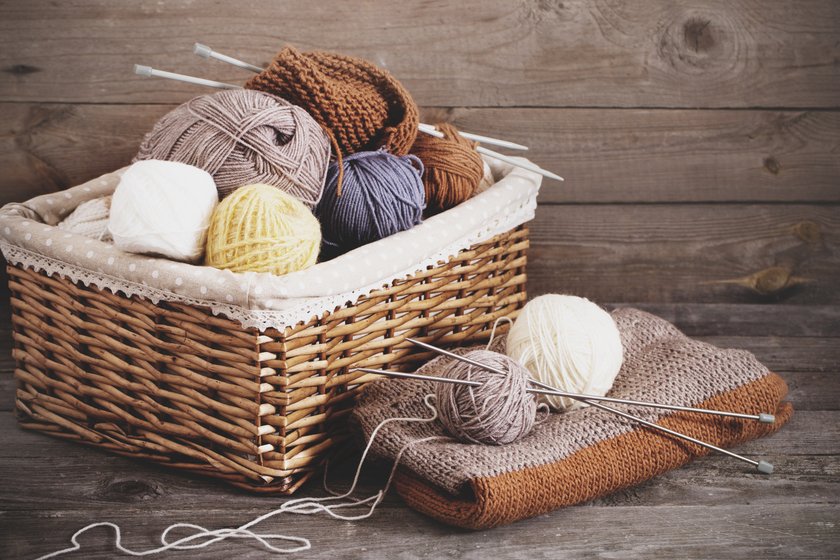Engaging in meaningful activities is crucial for individuals living with dementia. These activities not only provide stimulation but also enhance cognitive function and emotional well-being. Knitting, a beloved craft, has gained recognition for its therapeutic benefits and positive impact on dementia patients. In this article, we will delve into the reasons why knitting is considered one of the best activities for dementia individuals.
Therapeutic Benefits of Knitting
Knitting has been proven to have several therapeutic benefits, making it an ideal activity for individuals with dementia. The repetitive nature of knitting, the soothing rhythm of the needles, and the tactile experience of handling yarn can promote relaxation and reduce anxiety. Engaging in knitting has shown to lower blood pressure and heart rate, leading to a sense of calm and well-being. The meditative quality of knitting allows individuals with dementia to enter a state of flow, where they can focus their attention and immerse themselves in the present moment, alleviating stress and promoting mental well-being.
Cognitive Stimulation
Engaging in knitting stimulates various cognitive functions, which can be particularly beneficial for individuals with dementia. Knitting requires attention, concentration, and memory recall. Following patterns, counting stitches, and coordinating hand movements all contribute to cognitive exercise. Regular knitting sessions can help maintain cognitive abilities and slow down cognitive decline in individuals with dementia. Studies have shown that knitting can improve executive functioning, attention span, and problem-solving skills. It provides a mentally engaging task that challenges the brain and helps preserve cognitive function for longer.
Enhancing Motor Skills
Knitting involves intricate hand movements, which can help maintain and enhance fine motor skills. Manipulating the knitting needles and yarn strengthens hand-eye coordination, improves dexterity, and keeps fingers nimble. These motor skills are essential for daily activities, such as dressing, eating, and writing, and maintaining them can contribute to a sense of independence and self-confidence. The repetitive motions of knitting can also improve muscle memory and coordination, allowing individuals with dementia to maintain their manual dexterity and fine motor control for a longer period.
Sense of Purpose and Achievement
Knitting provides individuals with dementia a sense of purpose and achievement. Completing a knitting project, whether it’s a scarf, a blanket, or a hat, gives them a tangible outcome they can be proud of. This sense of accomplishment can boost self-esteem, promote a positive mood, and instill a sense of purpose, even when other areas of life may be challenging. Knitting allows individuals to set goals, work towards them, and experience the satisfaction of completing a task. This sense of purpose and achievement can contribute to a higher quality of life and a greater sense of self-worth for individuals living with dementia.
Social Interaction and Connection
Knitting can be a social activity, fostering interaction and connection among individuals with dementia. Group knitting sessions create opportunities for socializing, sharing stories, and offering support. The sense of belonging and camaraderie can help reduce feelings of isolation and loneliness, which are common in individuals with dementia. Knitting circles and knitting groups in retirement communities provide a supportive environment where individuals can engage with others who share a common interest. It also provides a platform for reminiscing, sharing memories, and building new relationships. The social aspect of knitting adds a layer of emotional well-being and fulfillment to the activity.
Emotional Well-being
Engaging in knitting can have a positive impact on the emotional well-being of individuals with dementia. The act of creating something with their hands and seeing tangible progress can bring a sense of joy, satisfaction, and pride. Knitting can serve as a form of self-expression and a way to channel emotions. It can also provide a calming and soothing effect, helping individuals with dementia manage feelings of anxiety, agitation, or frustration. Knitting offers a creative outlet that allows for personal expression and a means of engaging with the world in a meaningful way.
The Therapeutic Power of Knitting for Dementia Care
Engaging in knitting offers numerous benefits for individuals living with dementia. From its therapeutic effects to cognitive stimulation, enhanced motor skills, sense of purpose and achievement, social interaction, and emotional well-being, knitting provides a holistic approach to dementia care. As retirement communities strive to prioritize activities that promote overall well-being, knitting stands out as one of the best activities for individuals with dementia. By incorporating knitting into dementia care programs, we can enhance the quality of life and bring joy to those living with this challenging condition. Knitting provides not only a creative outlet but also a source of relaxation, cognitive exercise, social engagement, and emotional expression.







